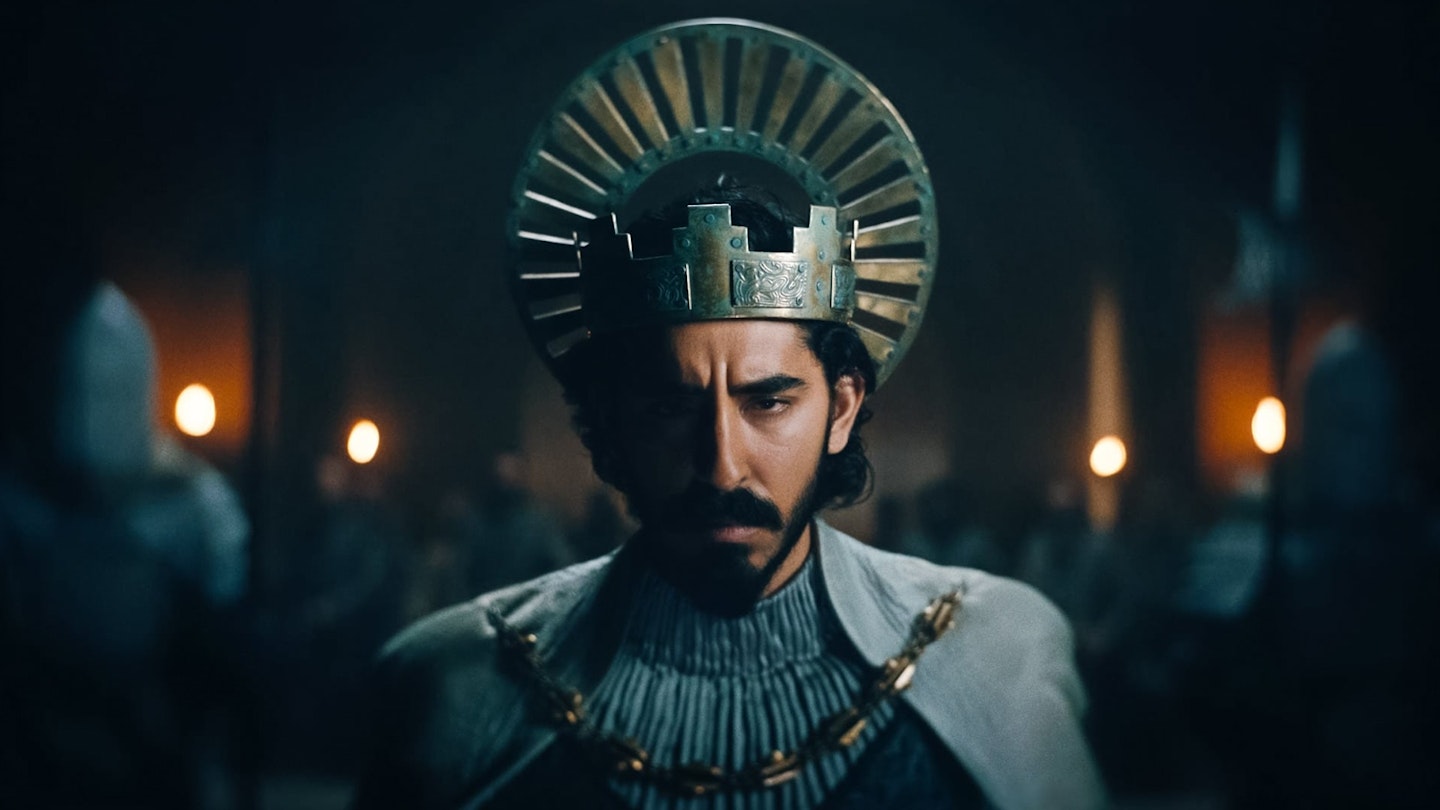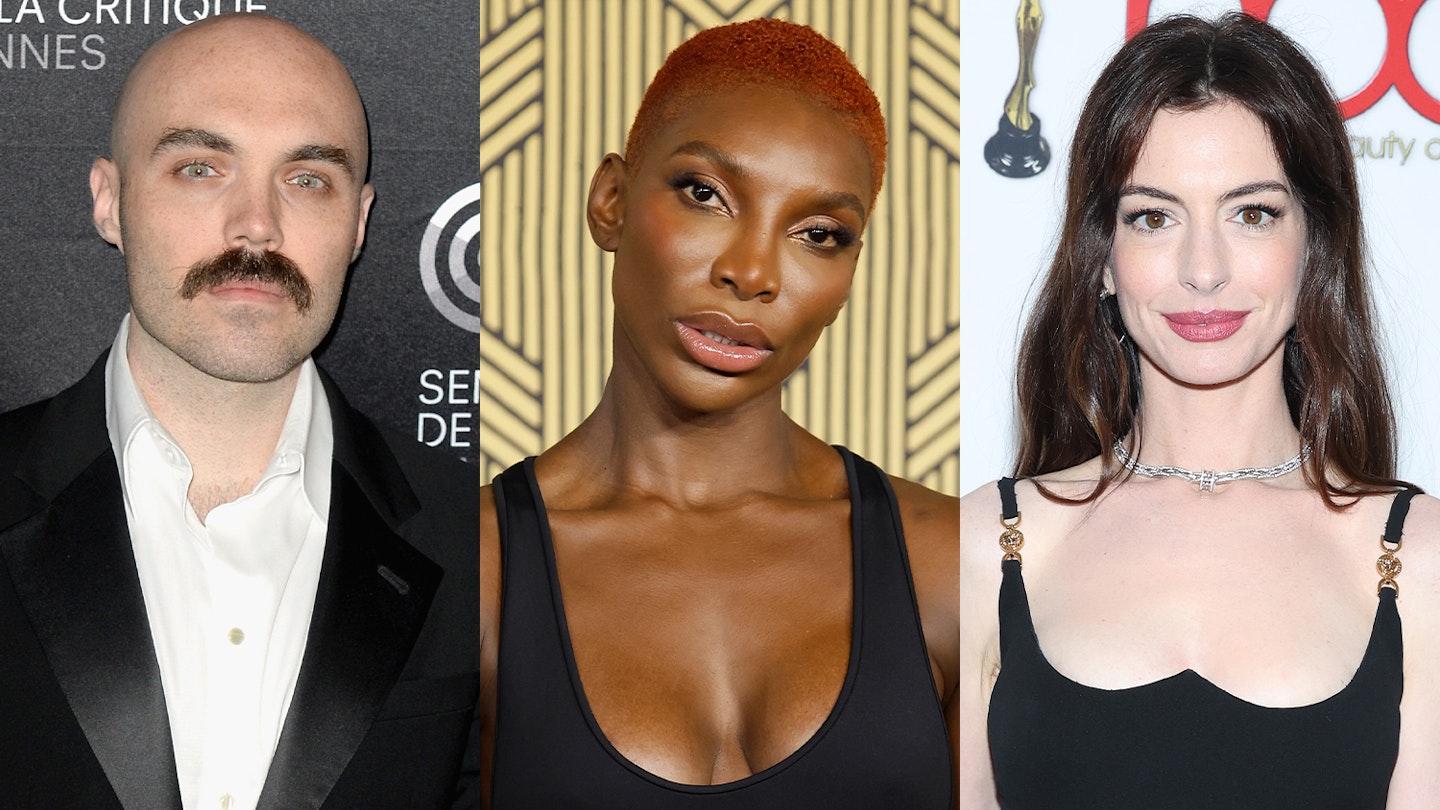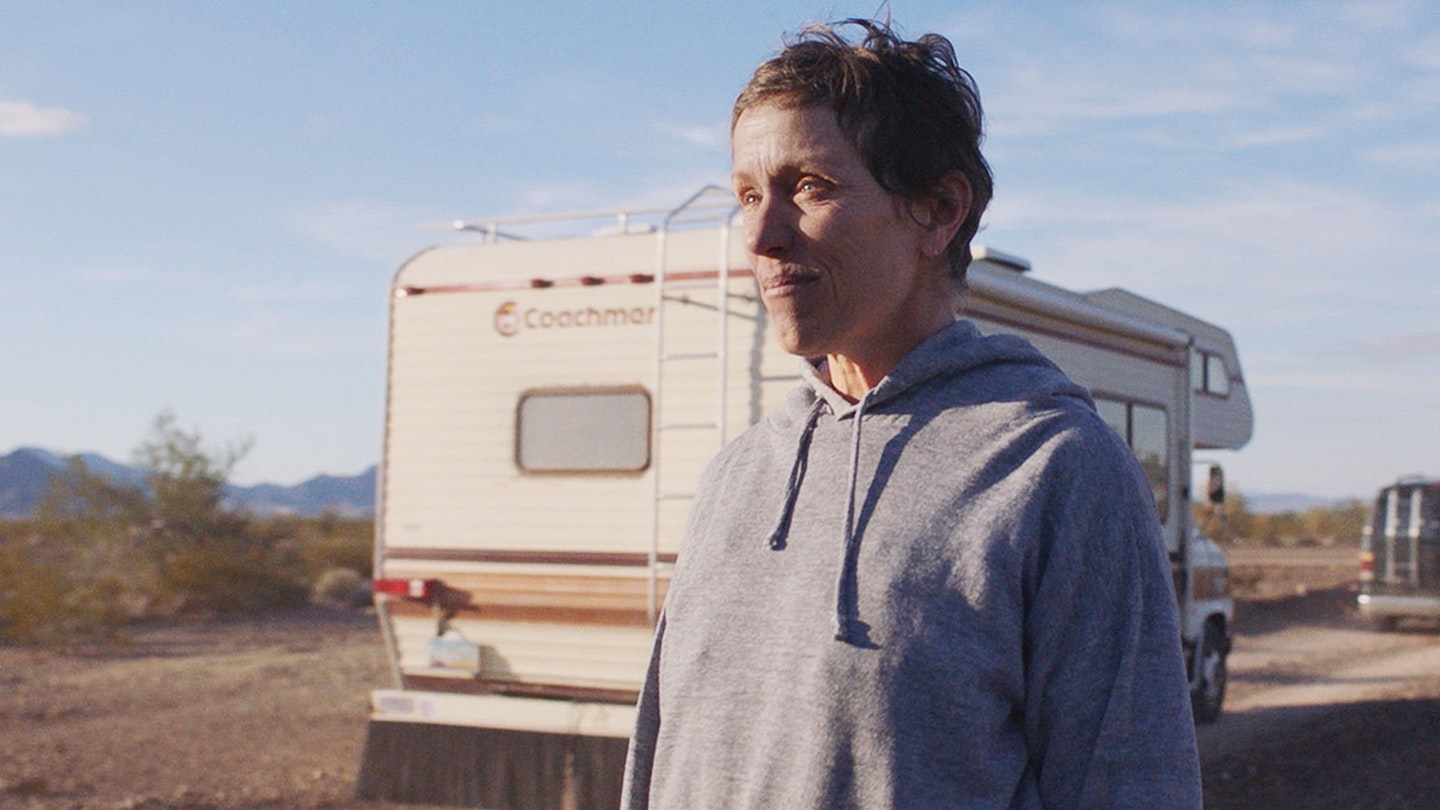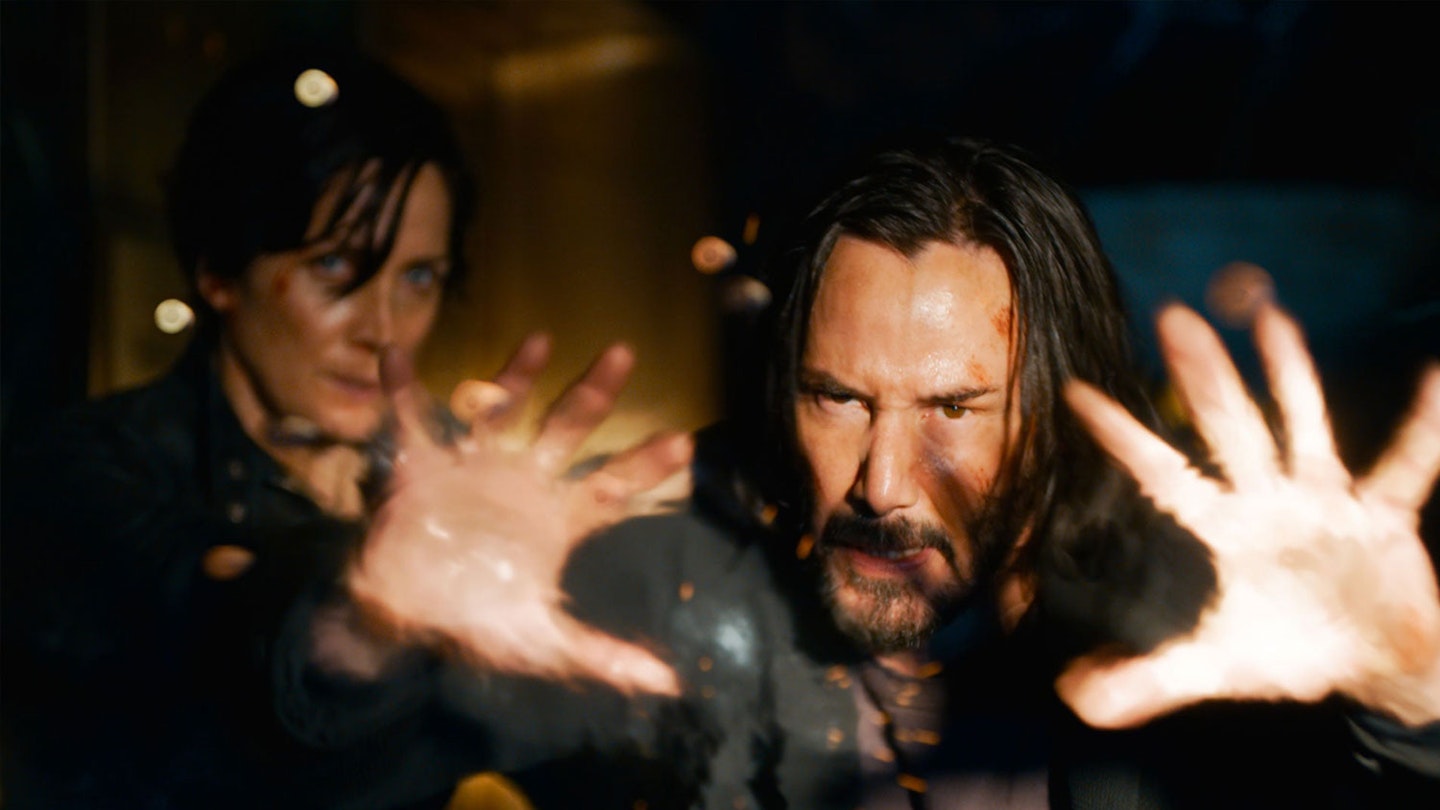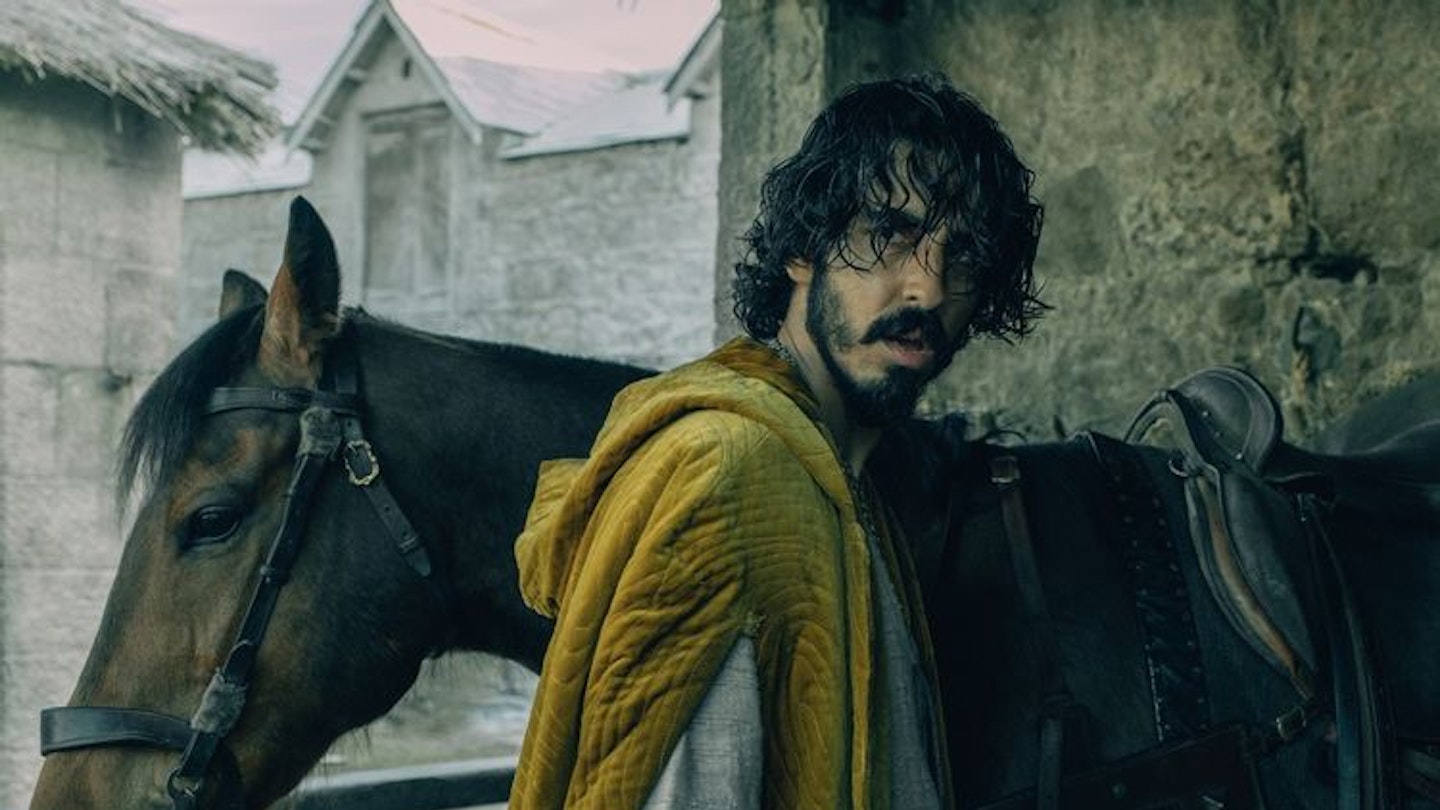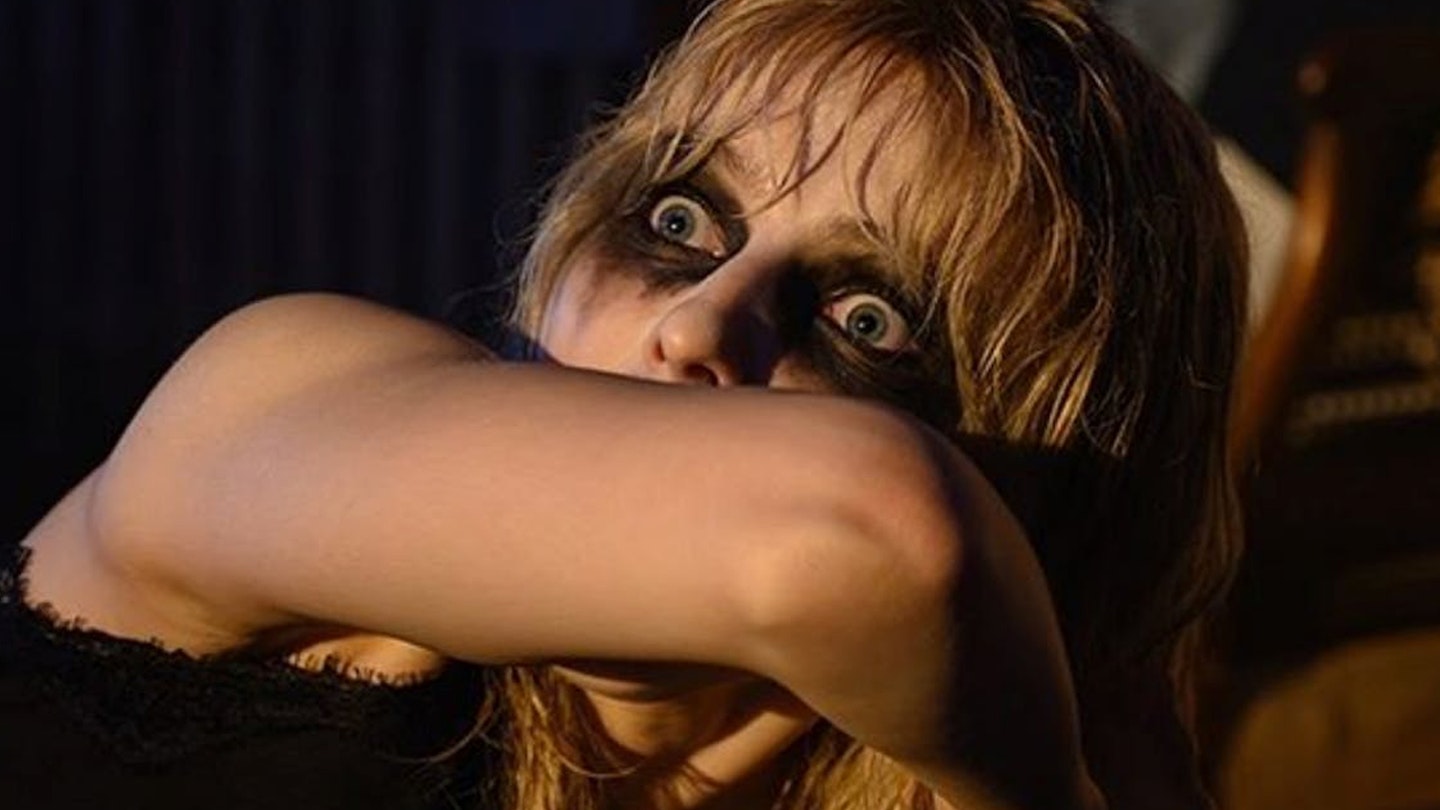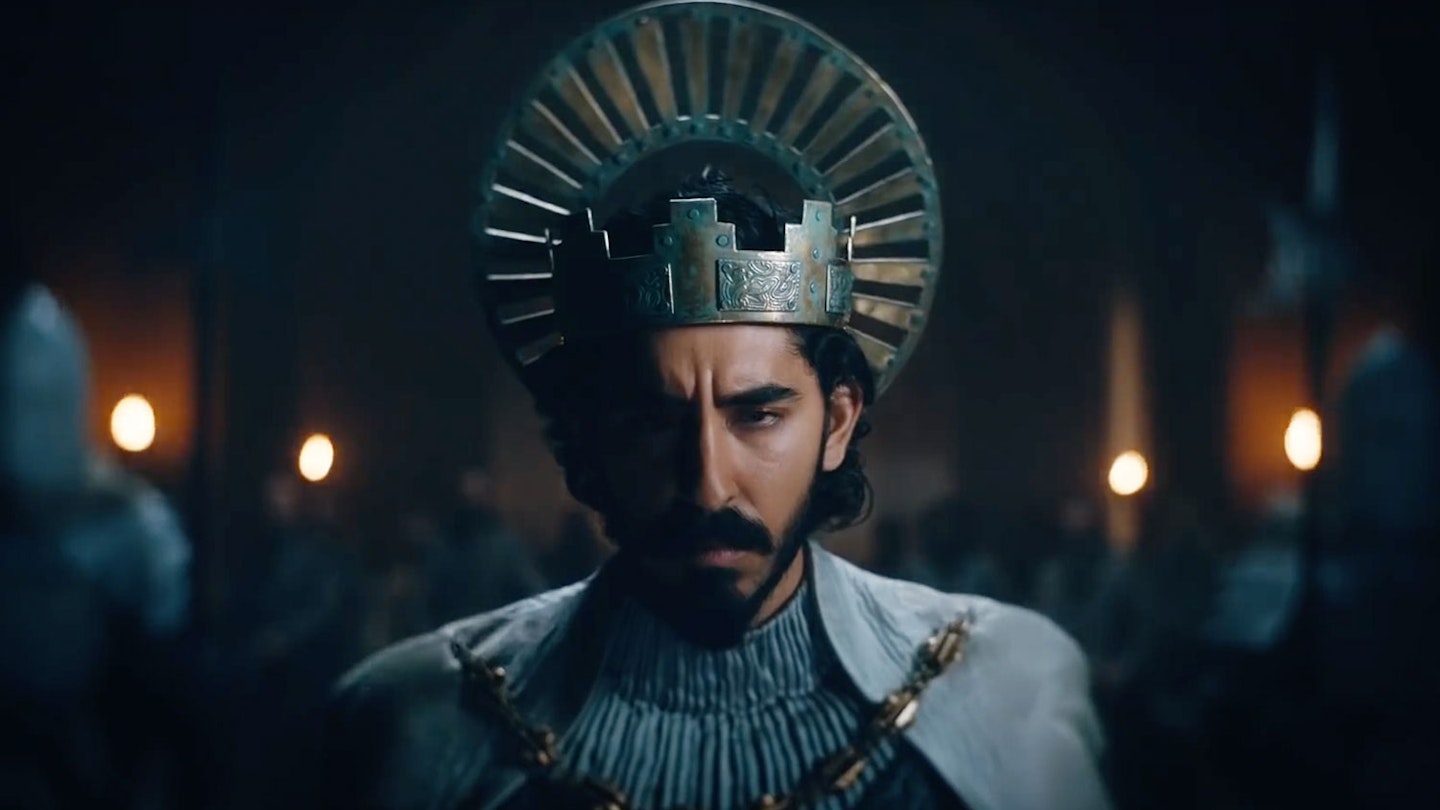David Lowery loves death. Or at least, he seems morbidly fascinated by it. It loiters, phantom-like, throughout his idiosyncratic, consistently accomplished filmography: from the orphan who processes grief for his parents via a friendly flying monster in Pete’s Dragon, to the career criminal confronted by his final years in The Old Man And The Gun, to a literal dead person (aka Casey Affleck with a bedsheet on his head) in A Ghost Story. Death gives David Lowery’s films life, and it beats at the weird, transgressive heart of The Green Knight, Lowery’s sixth — and likely best — film.
The first time we meet Gawain (Dev Patel) in The Green Knight, it is in a strange, hypnotic vision of what seems like his own death: as he perches on a throne in regalia, posed as if in a painting, his face erupts inexplicably in flames. It portends the deadly game he is about to play.

Remaining largely (but not wholly) faithful to the original 14th-century Arthurian poem by an anonymous author, the Green Knight — in Lowery’s vision rendered as a creaking, druidic demon, with a mossy beard and treebark for skin — bursts into young Gawain’s life with what he describes as a “friendly Christmas game”: he offers any challenger at Camelot his mighty axe if they can successfully land a blow on him. They must, however, receive the exact same blow, one year hence, at his chapel. Gawain, a nephew of Arthur but otherwise a bit of a nobody, foolishly takes the bait.
It is a classic kind of chivalric romance, a test of valour and honour. But Lowery is less interested in exploring the building blocks of English nobility than he is in exploring masculinity as a whole, with all its contradictions and failings, and how male hubris and naivety sit rather pathetically against the immutable tides of the natural world.
Like Gawain, you’ll need patience, a stout heart, and an open mind.
Patel is ingeniously cast for this kind of role. With his Byronic curls and breathless energy he cuts a dashing figure, but Lowery dials up the cowardice and folly of his Gawain, a young man not yet a knight and desperate to climb the ladder in a court of fading heroes. What lengths would a boy go to in order to prove himself to The Lads?
Gawain’s eventual journey to the Green Chapel is nothing if not eventful, taking in giants, ghosts, battlefields, a talking fox, and an unexpected handjob. Yet Lowery always prioritises atmosphere over action. Andrew Droz Palermo’s cinematography is gauzy and endlessly gorgeous, depicting Arthurian Britain (filmed, in fact, in Ireland) as a land at once familiar and unfamiliar, the stunning landscape monumental and indifferent. Daniel Hart’s enigmatic score, mixing traditional folk music with the occasional oppressive synth, affirms the mysterious mood. That, coupled with Lowery’s appetite for a languorous pace and long takes, leads to an uncanny and often slow experience for the viewer. Like Gawain, you’ll need patience, a stout heart, and an open mind.

Appropriately for an adaptation of a poem once translated by Tolkien, there are occasional hints of Middle-earth, and Lowery clearly relishes realising boyhood fantasies of fantasy (he has previously cited Ron Howard’s Willow as an early inspiration). But it also feels like a rejoinder to the genre’s worst tropes. There are none of the cheap effects or bad wigs here that doomed previous Gawain adaptations, such as the risible 1984 naff-fest Sword Of The Valiant.
This is what you might call a Revisionist Fantasy, doing for the genre what the likes of Robert Altman or Alejandro Jodorowsky did with their Revisionist Westerns: bringing an avant-garde flair and an ambiguous morality to a previously occasionally cheesy and childlike world.
Above all, The Green Knight is self-consciously participating in an ancient tradition. As the variety of typefaces used in the opening titles hint at, this is only the latest interpretation of a centuries-old yarn, itself based on folk tales in the oral tradition of the time, and surely destined to be retold further still. “Tell me a tale of yourself, so I might know thee,” pleads King Arthur (Sean Harris), and by extending his hand into the past, Lowery has taken up the gauntlet, to be remembered into the future. Maybe that’s why he loves death: when you make a film this remarkable — archetypal, yet also totally unique — you’re achieving some form of immortality.
